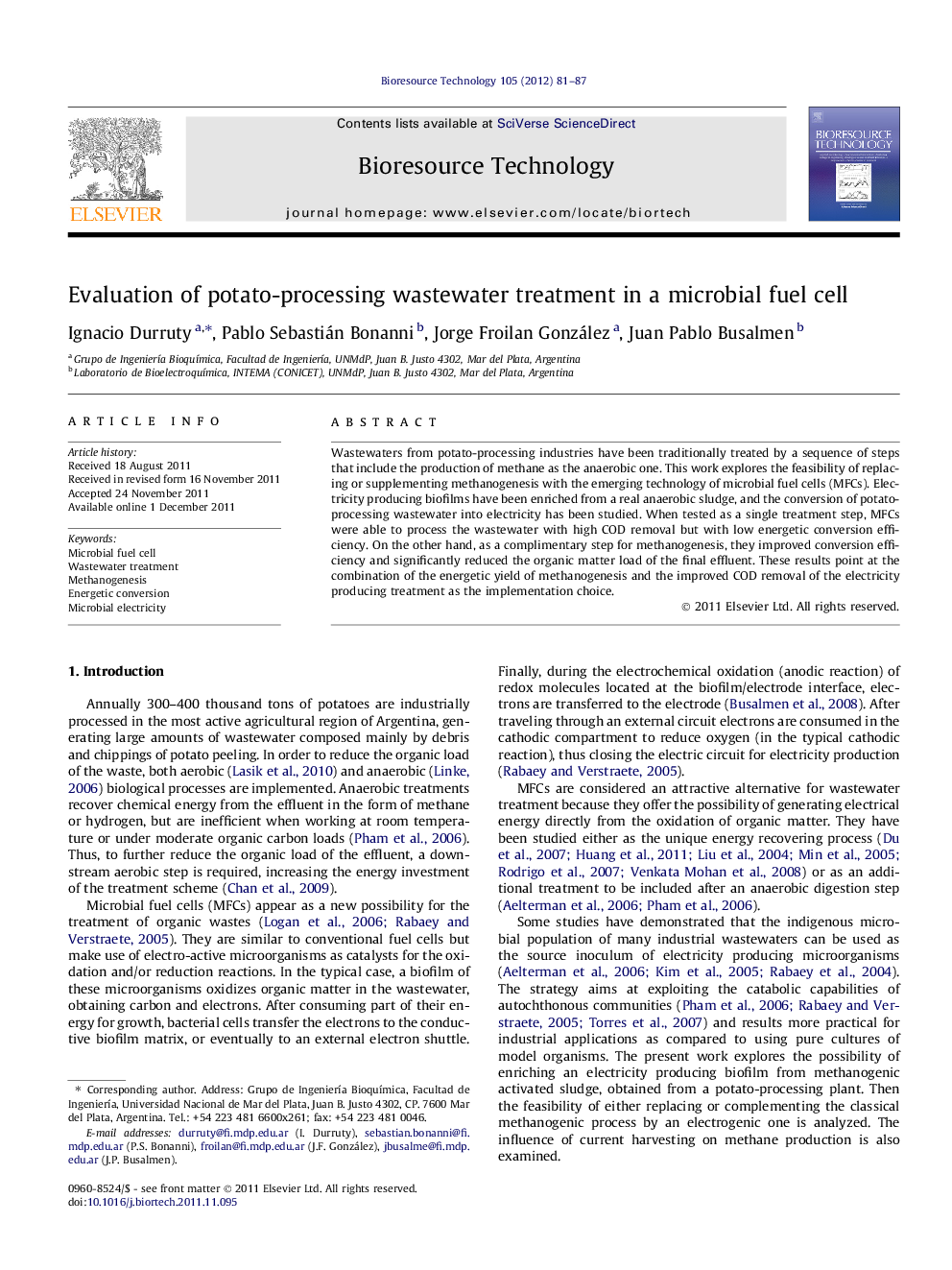| Article ID | Journal | Published Year | Pages | File Type |
|---|---|---|---|---|
| 681591 | Bioresource Technology | 2012 | 7 Pages |
Wastewaters from potato-processing industries have been traditionally treated by a sequence of steps that include the production of methane as the anaerobic one. This work explores the feasibility of replacing or supplementing methanogenesis with the emerging technology of microbial fuel cells (MFCs). Electricity producing biofilms have been enriched from a real anaerobic sludge, and the conversion of potato-processing wastewater into electricity has been studied. When tested as a single treatment step, MFCs were able to process the wastewater with high COD removal but with low energetic conversion efficiency. On the other hand, as a complimentary step for methanogenesis, they improved conversion efficiency and significantly reduced the organic matter load of the final effluent. These results point at the combination of the energetic yield of methanogenesis and the improved COD removal of the electricity producing treatment as the implementation choice.
► An enriched electricity producing biofilm was obtained from an industrial anaerobic sludge. ► A new insight for replacing or complementing methanogenesis with MFCs is given. ► MFC can reduce the COD load in wastewater faster than conventional methanogenesis. ► MFC is an effective way to further treat the effluent from a methanogenic reactor. ► Both technologies can better complement to each other than compete between them.
